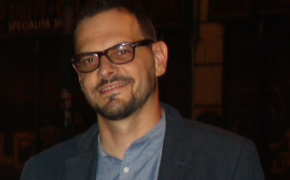It combines social support actions with practices that limit surpluses in the food sector and contribute to the reduction of waste.
It consists of organising a collection of fresh and non-food products from commercial establishments and canteens, which can start a food surplus recovery programme.
It has the objective of organizing collaboration between commercial and institutional activities in the recovery of food surpluses that have not been served or sold in large and small distribution and in school and industrial canteens in the area, for the benefit of Narnian families in economic difficulty properly identified by the offices of social services. The operators of the social cooperative at the end of the morning of each day begin the collection round, with means suitable for food transport. Once the food has been collected, the staff goes to a suitably equipped kitchen to prepare the portions which will then be distributed.
In Narni during 2017 about 40 people have been able to assist in their food needs thanks to the project; the Municipality, together with the five local commercial activities in collaboration with the Food Bank of Umbria has declared that it wants to grow up to 150 meals thanks to the strengthening of current collaborations and the entry of new activities.
During 2018 the number is increased, getting the 200 meals. With a resolution, a procedure for access to the service has been activated, which also brings an economic benefit to the activities that donate the food as tax relief and Tari reduction based on the quantities donated.
Resources needed
Project financed by regional funds ROP-ERDF
Evidence of success
It amounted to one tonne of food recovered in the first six months of the project from September to January, with the food being distributed to 8 families, identified by social services, for a total of 18 meals a day. In 2018 the quota of 200 meals per day was reached.
Difficulties encountered
Sometimes the food doesn't come very hot. The "tours" are many and the staff and cars instead always in a smaller number than the real needs of the territory. In addition, there is no real place of reference for requests, an office that is not the municipality, to put everyone at ease.
Potential for learning or transfer
The most interesting aspect is how the social services of the Municipality have identified and involved the families targeted by the project, with the packaging of parcels and home delivery. An activity that makes it possible to create a service tailored to real needs and whose environmental and social value is of relevant importance.
Tags: Environment, Waste, Food, Cooperation, Social








